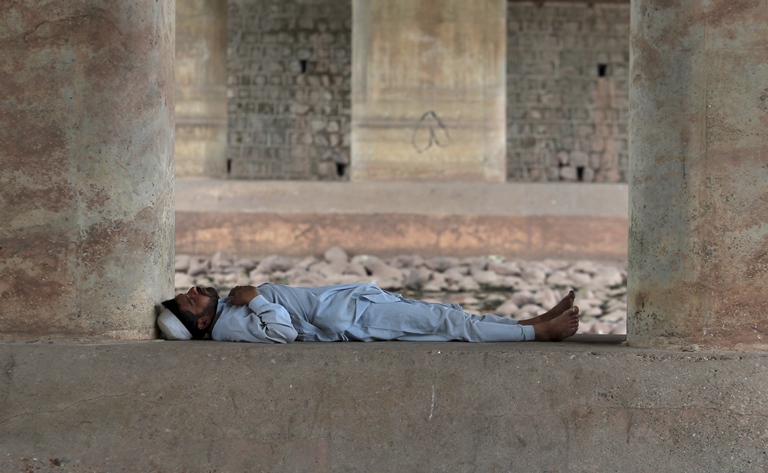
He was addressing a consultative session at the Pakistan Medical Association (PMA) on Friday to discuss ways to overcome the heatwave forecasted for June this year.
According to Baig, when you build a dam on the river, it means you build it on the sea, which has disastrous consequences and causes catastrophes in the shape of higher rate of cyclones due to higher salinity and unexpected rains.
He also believed that the biggest culprit in bringing environmental abnormalities in the region is India, which has built almost 70 to 80 dams in the Himalayan region. “When you challenge geology, you have to face the consequences surrounding it and heatwave is one of them,” he said. He also recommended that electricity and water supply must be ensured in the months of heatwave.
Journalist Mehmood Alam Khalid focused on the importance of preparedness and said that, in 2014, the Indian state of Gujarat had faced a heatwave in which almost 100 people died but, in 2015, only 26 people lost their lives due to preparedness. According to him, in Andhra Pradesh and Telangana, more than 1,000 people lost their lives in 2015 in one of the worst heatwaves in the region.
Chief meteorologist Touseef Alam said that, during the heatwave in Karachi last year, the temperature was 44.5 degree centigrade whereas it was higher in interior Sindh. He added that absence of sea breeze and high humidity caused the loss of lives in Karachi.
“Heatwave is also expected this year but we need to take precautionary measures,” he said. Most of June will be sunny with high temperatures and the month of Ramazan will be from June 7 to July 7.
Journalist Aafia Salam said that Pakistan, as well as Karachi, are disaster-prone regions and it is the responsibility of all the stakeholders to make a document so that can be shared with the government and the people to avoid any such disaster in the future. She recommended low-cost and low-technology solutions to mitigate the challenges of heatwaves.
Dr Qazi Wasiq, a representative of PMA, gave a presentation, saying that lack of preparedness resulted in the number of deaths. He said that the government has invested billions on parks but nothing has been done to plant trees in the city. He also criticised people who rushed to Jinnah Postgraduate Medical Centre (JPMC) alone instead of going to nearby dispensaries or hospitals. Quality Health Safety Environment specialist Saman Laiq Abbasi recommended that awareness at schools and colleges must be spread before the arrival of summers. Ecologist Rafiul Haq recommended that the awareness campaign must be started earlier.
“We must take steps now and start preparing the people to face the heatwave in a resilient way,” he said.
Assistant professor at Karachi University, Dr Waqar Ahmed, suggested that we must protect mangroves that absorb heat and stabilise the temperature. He also said that concrete entraps heat energy and we must put a check and balance in place regarding the expansion of concrete structures in the city and must develop green spaces around buildings.
Journalist Shabina Faraz recommended the mapping of medical facilities in the city to overcome any emergency situation during a possible heatwave.
Published in The Express Tribune, January 31st, 2016.

















COMMENTS
Comments are moderated and generally will be posted if they are on-topic and not abusive.
For more information, please see our Comments FAQ